KIEN GIANG Using SUMITRI microbial products to treat straw helps supplement nutrients for fields, reduce costs, protect the environment, farmers have a profit of nearly 47 million VND/ha.
Add organic matter to the soil
The Standing Office in the South (National Agricultural Extension Center) has just coordinated with the Kien Giang Agricultural Extension Center and Phuong Nam Agricultural Development Company Limited to organize a workshop to evaluate the model of processing straw into fertilizer right in the field using organic fertilizer Crowel M+ combined with SUMITRI microbiological products. The model was implemented in the 2024 summer-autumn rice crop at Vinh Phu Agricultural - Farmer Cooperative (Vinh Phu commune, Giong Rieng district, Kien Giang) with a scale of 5 hectares, using OM18 rice variety.
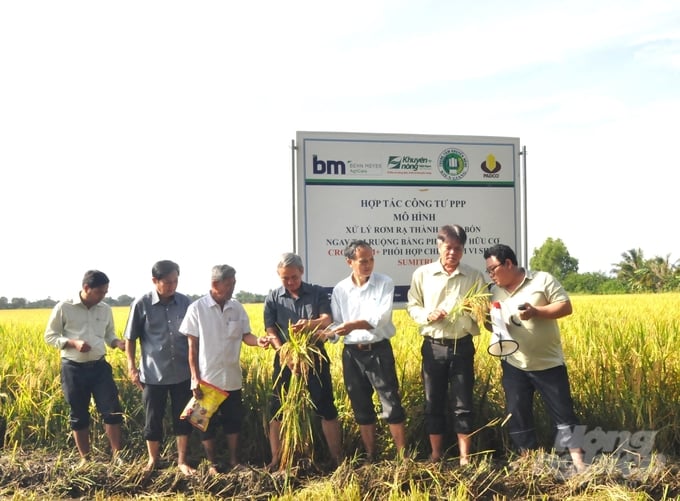
The model of processing straw into fertilizer right in the field using organic fertilizer Crowel M+ combined with SUMITRI microbiological product in Vinh Phu commune (Giong Rieng district) is very useful and highly effective. Photo: Trung Chanh.
Vinh Phu is a land specializing in growing rice twice a year, farmers often have difficulty in handling straw after harvest, causing organic poisoning. Moreover, burning straw to clean the fields further degrades the soil, affects productivity, economic efficiency and causes environmental pollution.
The model of using SUMITRI biological products has helped farmers quickly process straw in the fields, creating a source of organic fertilizer to supplement nutrients for the soil, improving efficiency in rice production. Accordingly, after harvesting the 2023 - 2024 winter-spring rice crop, farmers will process straw with SUMITRI products at a dose of 3kg/ha (selling price 200,000 VND/kg). After 15 days of treatment, about 70 - 80% of the straw has decomposed, becoming an additional organic source for the fields.
Mr. Pham Xuan Hung, Director of Phuong Nam Agricultural Development Company Limited - the manufacturer and supplier of SUMITRI biological products, said that each kg of straw after treatment will produce about 0.6 kg of organic fertilizer. Each hectare of rice after harvest will leave about 8 tons of straw in the field, treatment will produce nearly 5 tons of organic fertilizer to supplement nutrients for the soil. Therefore, helping farmers reduce about 30% of chemical fertilizer and reduce 2-3 times of spraying pesticides because rice is less susceptible to pests and diseases.
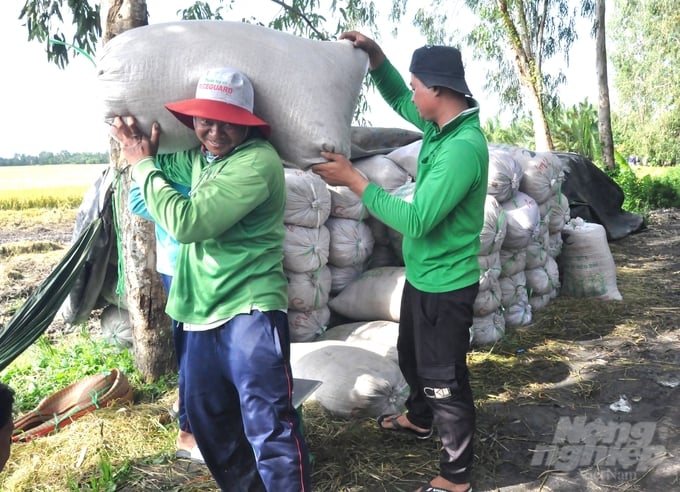
Thanks to the application of SUMITRI microbial products to treat straw and add organic nutrients to the soil, Vinh Phu farmers had a successful summer-autumn rice crop, achieving the highest profits. Photo: Trung Chanh.
The results of the 2024 summer-autumn rice crop production have brought great joy to the farmers. Field visits showed a huge difference between the fields treated with SUMITRI biological products and untreated fields. The rice plants grew strongly, blooming with many effective shoots, large, firm grains and bright yellow color, the rice did not fall over, making it convenient for mechanical harvesting.
Mr. Du Van Kieu, Director of Vinh Phu Agricultural - Farmer Cooperative, excitedly said that the rice yield in fields treated with SUMITRI biological products reached 7.2 tons/ha (fresh rice harvested by machine), fields combined with organic fertilizer reached 8.5 tons/ha, and control fields reached 7.2 tons/ha.
Production costs in the model fields were 20 and 18.5 million/ha respectively thanks to the reduction of chemical fertilizers and pesticides, while the control field was 22.2 million/ha. The price of rice (OM18 variety) that traders bought at the field was 7,700 VND/kg. After deducting costs, the model fields earned profits of 40 and nearly 47 million VND/ha respectively, while the control field only earned nearly 33.2 million VND/ha.
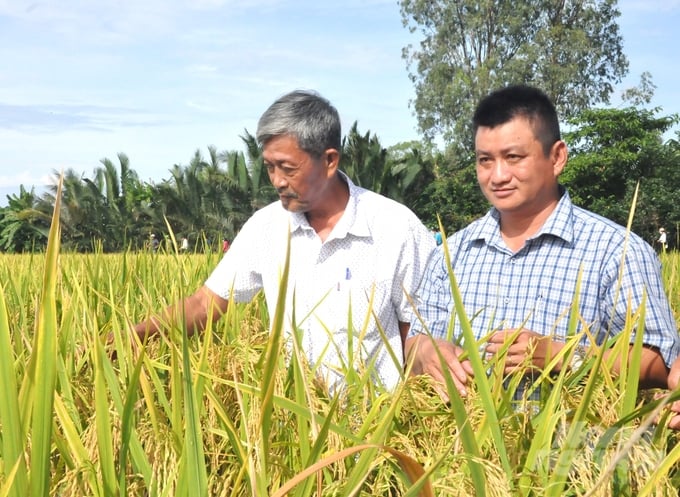
The model of treating straw in the field with SUMITRI microbial products has provided organic matter to the soil, helping rice grow well, with fewer pests and diseases, reducing costs and achieving high productivity. Photo: Trung Chanh.
“Thanks to the application of some techniques in rice production, the fields in the model have reduced production costs, increased productivity, and increased profits by 6.8 - 13 million VND/ha, reaching nearly 47 million VND/ha, which is the highest level for the summer-autumn rice crop that farmers here have achieved,” Director Du Van Kieu excitedly said.
Burning straw is burning money
Mr. Nguyen Van Kia, a member of Vinh Phu Agricultural - Farmer Cooperative, shared: "We farmers are aware that selling straw is like selling blood, and burning straw in the fields is like burning money. However, because there is no effective treatment method, we have to burn it, but it is a pity."
Through a rice crop using SUMITRI biological products to quickly process straw in the field, creating a source of organic fertilizer to supplement nutrients for the soil, it has brought about clear results. Rice production costs have decreased, harvest yields have increased, and profits have been high. Therefore, Mr. Kia and many other members said they are willing to buy and use SUMITRI biological products to process straw instead of burning the fields as before.
Giong Rieng is a district in the West Hau River region, with a rice cultivation area of nearly 47,000 hectares, divided into 3 sub-regions. The land here is fertile alluvial, with a year-round source of fresh water. With investment in a complete irrigation system, it has the potential to develop intensive rice cultivation 3 crops/year. In the 2024 autumn-winter rice crop, Giong Rieng plans to sow 25,000 hectares, but so far farmers have sown more than 31,000 hectares.
Mr. Le Van Chi, Deputy Head of the Department of Agriculture and Rural Development of Giong Rieng district, said that the area for planting autumn-winter rice is the sub-regions that produce 3 rice crops per year in the district. Because of growing 3 rice crops per year, the time between crops is short, farmers face pressure in processing straw, so they often choose to burn the fields. However, during the rainy season, farmers will have difficulty in processing, having to bury them in water, causing environmental pollution, and straw decomposes slowly, causing organic poisoning for the next rice crop.
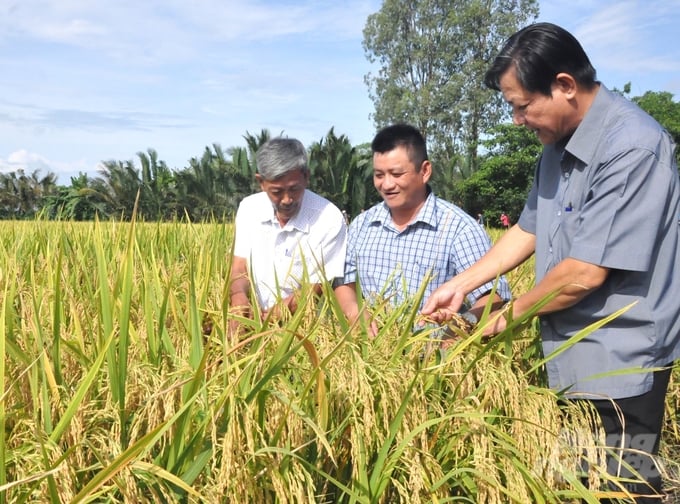
Deputy Director of Kien Giang Agricultural Extension Center - Mr. Nguyen Van Hien (right cover) and farmers evaluate the effectiveness of the model of treating straw in the field using SUMITRI biological product. Photo: Trung Chanh .
According to Mr. Chi, through the practical model of using SUMITRI biological products to quickly process straw in the fields in Vinh Phu, it shows that this is an effective and useful solution, so it should be replicated and encouraged to be applied by farmers in the district.
Giong Rieng district has also developed a plan to develop organic rice production and has support policies for farmers to implement. In addition, the district is participating in the project to develop 1 million hectares of high-quality, low-emission rice cultivation associated with green growth in the Mekong Delta by 2030, so it is in great need of effective solutions to handle straw and reduce greenhouse gas emissions.
Nguyen Van Hien, Deputy Director of Kien Giang Agricultural Extension Center, said that the agricultural sector has now shifted from production to agricultural economics and responsible agriculture. To implement the agricultural value chain, farmers need to participate in production linkages through farmer organizations to have a large enough area, a uniform process, and create a large enough quantity of goods to meet business needs.
Therefore, farmers must follow the recommended production process, attend technical training sessions organized by the agricultural sector and agricultural extension officers. Change backward production practices that are harmful to the environment such as burning fields or plowing straw into water to decompose. Farmers need to keep a production diary to calculate costs, efficiency and profit of each crop.
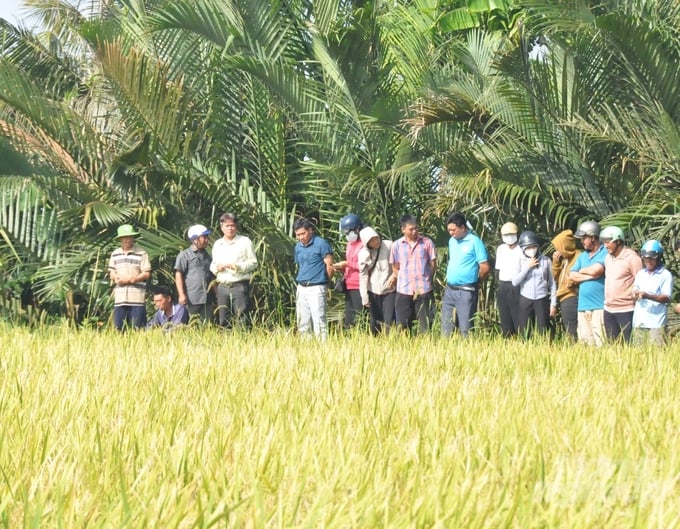
The model of treating straw in the field with SUMITRI microbial products helps reduce environmental pollution, reduce greenhouse gas emissions, increase rice production efficiency, and increase farmers' income. Photo: Trung Chanh.
One of the requirements of the 1 million hectare high-quality rice project is to remove straw from the fields to grow mushrooms, make animal feed or have an effective solution using microorganisms right in the field to make organic fertilizer but not cause greenhouse gas emissions. Therefore, the model of using SUMITRI biological products to quickly treat straw in the field is a new method that requires technical training for farmers to apply effectively.
Dr. Nguyen Van Bac, Deputy Head of the Southern Office (National Agricultural Extension Center) commented: “SUMITRI biological products not only help farmers quickly process straw in the fields without causing environmental pollution, but also create a source of additional nutrients for the soil to produce the next rice crop more effectively. Therefore, local authorities, the agricultural sector, and agricultural extension need to have policies to support and train farmer organizations to apply them to produce rice with reduced emissions and sustainability.”
Source: https://nongsanviet.nongnghiep.vn/nong-dan-da-y-thuc-dot-rom-la-dot-tien-d394694.html



![[Photo] Soldiers guard the fire and protect the forest](https://vphoto.vietnam.vn/thumb/1200x675/vietnam/resource/IMAGE/2025/9/27/7cab6a2afcf543558a98f4d87e9aaf95)








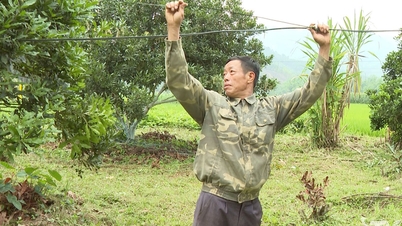

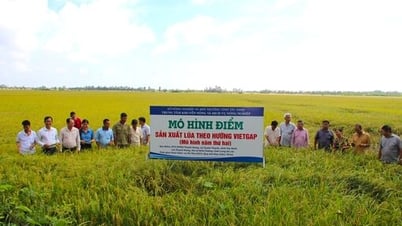

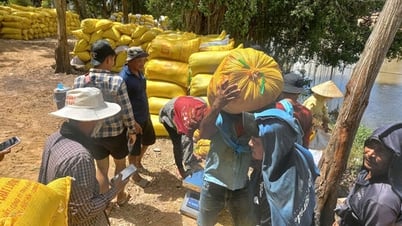




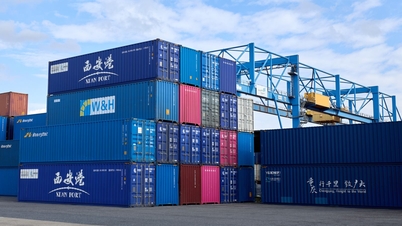



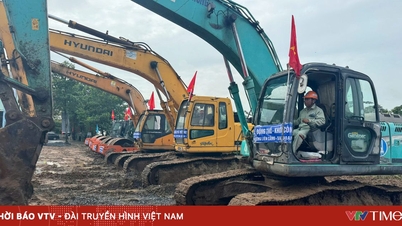







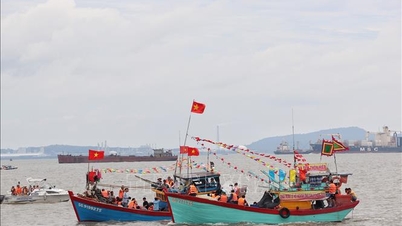

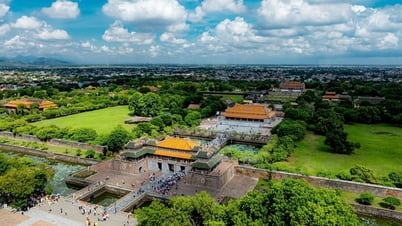

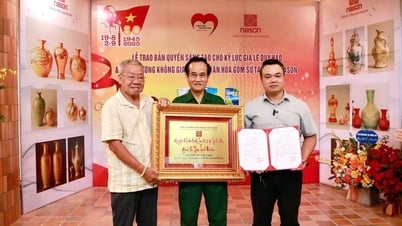


![[Photo] Prime Minister Pham Minh Chinh attends the 1st Hai Phong City Party Congress](https://vphoto.vietnam.vn/thumb/1200x675/vietnam/resource/IMAGE/2025/9/27/676f179ddf8c4b4c84b4cfc8f28a9550)
























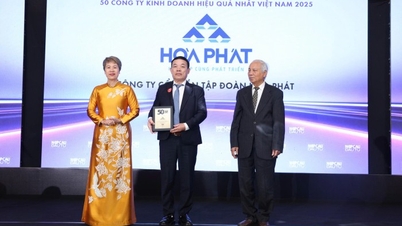




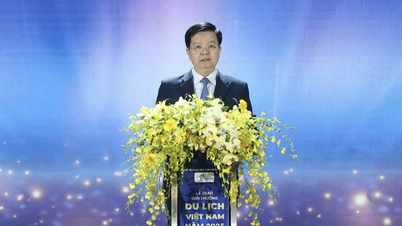









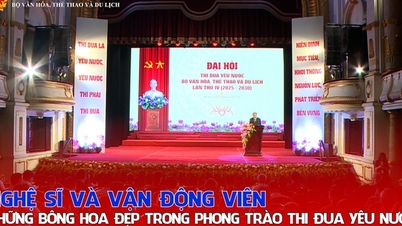



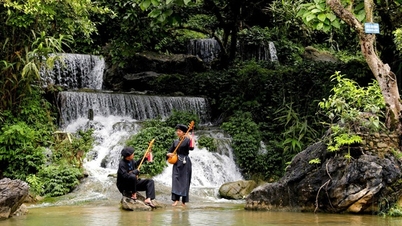
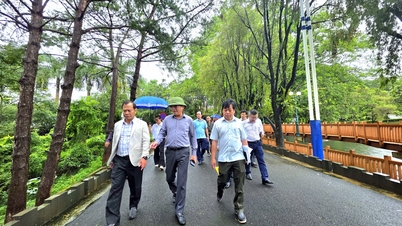


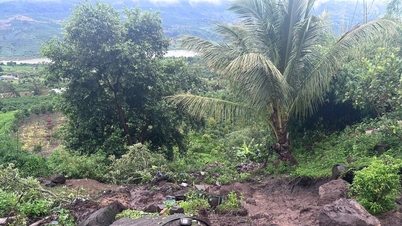














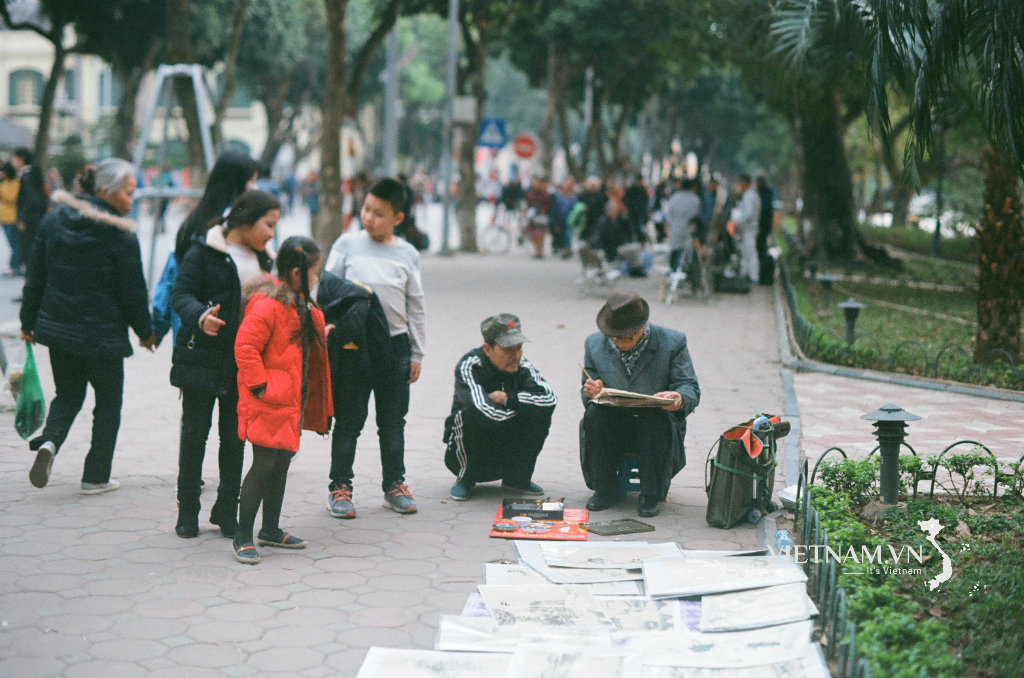


Comment (0)